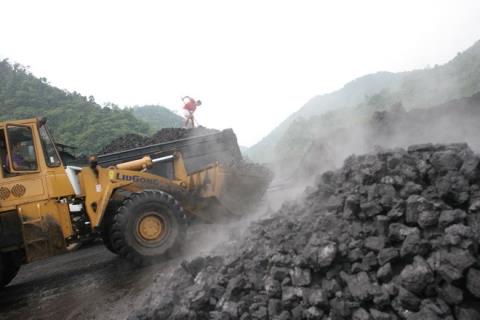INDOCHINA INTERNATIONAL CONSULTING CO., LTD
HO Add: 62L/36 Nguyên Hồng, Ward 11, Bình Thạnh District, HCMC - Vietnam
Biz Office Add: #48 Road No 11, Quarter 6, Hiệp Binh Chánh Ward, Thủ Đức, HCMC - Vietnam
®Source: http://viipip.com should be clearly quoted for any use of information extracted from our website.
Publication permit No: 60/GP-TTĐT , April 05, 2010.


He spoke at a workshop at the GRIPS Development Forum (GDF) and Vietnam Development Forum (VDF) in mid-December 2014.
Rwanda, Zambia, Ethiopia and Tunisia, which have been able to reduce corruption, have better industrial policies than Vietnam, he said.
The leaders in the countries take part in sanitation campaigns with citizens and set up action plans every year.
These countries have also been making great efforts to develop the private economic sector and bolster the inner strength of their national economies.
Meanwhile, as Professor Ohno said, Vietnam has made efforts to create value since doi moi (renovation) initiated by the Communist Party in 1986.
But the professor warned that Vietnam has fallen into the middle-income trap, and that if it does not make changes to policies, it will get bogged down in the trap.
He said that Vietnam lacks both the strong will and the capability to speed up its industrialization process.
Policies on vocational training, on small- and medium-sized enterprise development, and support industry development remain weak. Policies on productivity improvement and renovation barely exist, he said.
Commenting on the issue, Dang Thi Thu Hoai, deputy head of the Public Service Policy Division of the Central Institute of Economic Management (CIEM), said: “Many policies have not been implemented or have not brought desired effects, especially in education, and science and technology development.”
“Vietnam has created many new policies with an aim to make science and technology play a key role in economic development. However, the effects of the policies over the past decades have been modest,” she said.
Professor Ohno said that attracting foreign direct investment, developing small- and medium-sized enterprises, and linking foreign-invested and domestic enterprises were three policies necessary for any country.
“In Vietnam, foreign-invested enterprises export more than they import, while domestic enterprises import more than they export. The real estate bubble still exists,” he said.
He emphasized that Vietnam should not rely on ODA (official development assistance) and FDI, but on industrial policies to reform and develop.
- FDI capital continues to pour into Vietnam (6/11/2025 1:20:33 PM)
- Thanh Hoa receives good news: Preparing to have an additional industrial park of up to 470 hectares, creating jobs for nearly 30,000 people (6/11/2025 1:15:09 PM)
- Industrial Park Real Estate: Waiting for the New Generation of FDI (6/11/2025 1:10:15 PM)
- A wealthy Vietnamese city will have two special economic zones after the merger (6/11/2025 1:04:42 PM)
- 30 billion USD capital FDI in Việt Nam by 2025, a series of "ông big" races to expand the land fund (6/11/2025 12:55:26 PM)
- the 2nd largest city in the North will start construction on an international economic zone (6/11/2025 12:50:20 PM)
- Japanese giant Sumitomo continues to want to build an industrial park in the countrys fourth smallest province. (6/11/2025 12:40:45 PM)
- 3 foreign corporations want to invest billions of dollars in Ba Ria - Vung Tau (6/11/2025 12:34:30 PM)
- Lotte Group member starts construction of nearly 1,000 billion VND logistics center in the province with the most industrial parks in Vietnam (6/11/2025 12:33:26 PM)
- Forming a regional center for manufacturing spare parts and components (6/11/2025 12:24:08 PM)
- Vietnams first wafer factory is about to start construction (6/11/2025 12:19:09 PM)
- Dong Nai attracts foreign investors (6/11/2025 12:13:27 PM)
- Tay Ninhs largest industrial park welcomes a $150 million high-end knitted fabric factory project (6/11/2025 12:11:00 PM)
- (6/11/2025 12:09:10 PM)
- Vietnam will become a destination for Chinese investors in the future (11/6/2023 1:03:19 PM)

- FDI capital continues to pour into Vietnam
- Thanh Hoa receives good news: Preparing to have an additional industrial park of up to 470 hectares, creating jobs for nearly 30,000 people
- Industrial Park Real Estate: Waiting for the New Generation of FDI
- A wealthy Vietnamese city will have two special economic zones after the merger
- 30 billion USD capital FDI in Việt Nam by 2025, a series of "ông big" races to expand the land fund










 ADB: Vietnam’s 2009 GDP growth to be highest in South East Asia
ADB: Vietnam’s 2009 GDP growth to be highest in South East Asia MGM Grand Ho Tram: Vietnam’s First ‘Las Vegas Style’ Integrated Resort
MGM Grand Ho Tram: Vietnam’s First ‘Las Vegas Style’ Integrated Resort Nha Trang’s Twin Towers project licenced
Nha Trang’s Twin Towers project licenced Foreign investors still have good opportunities in Vietnam
Foreign investors still have good opportunities in Vietnam Sierra Wireless gets a foot in Vietnam’s ICT market
Sierra Wireless gets a foot in Vietnam’s ICT market